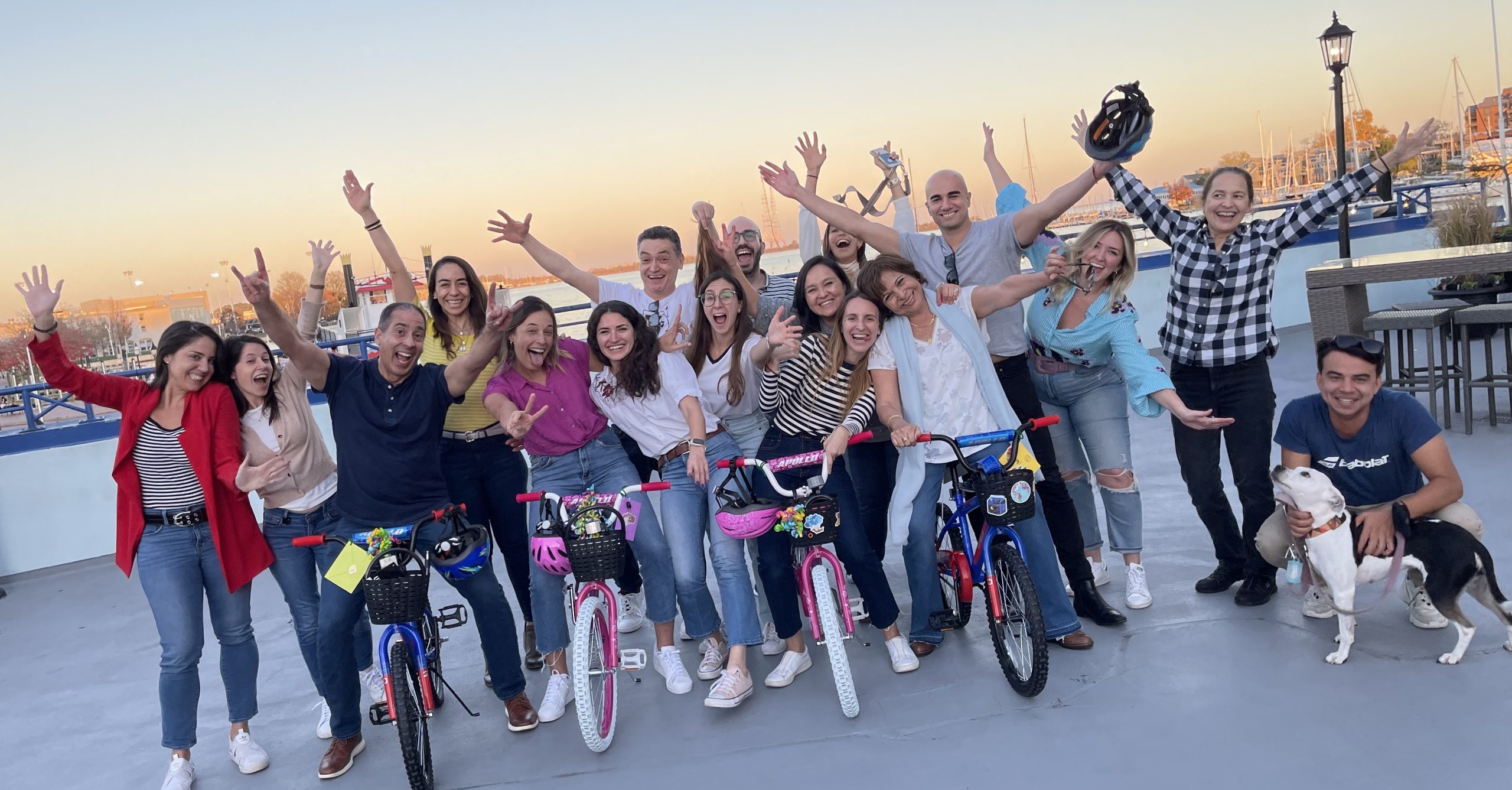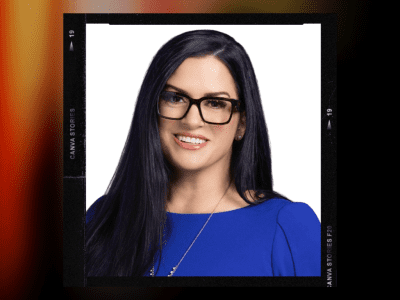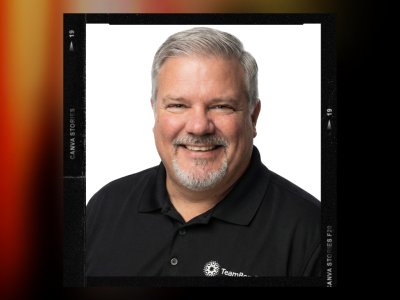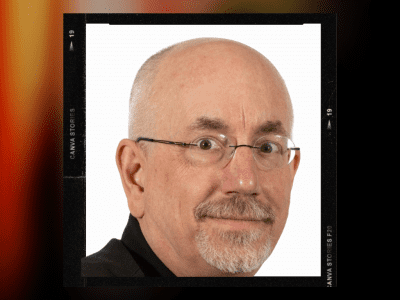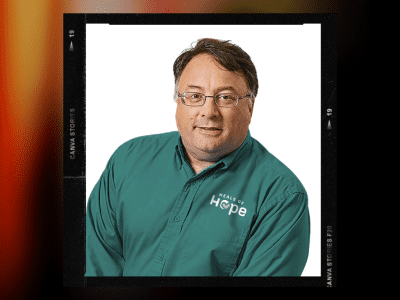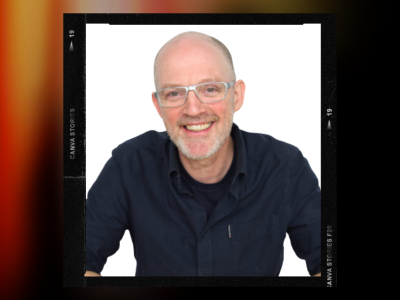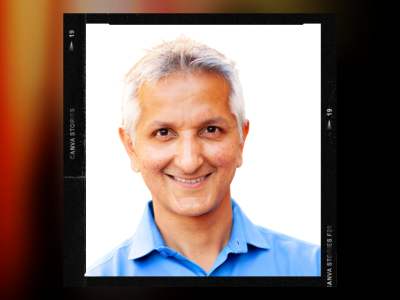STRONG TEAMS DON’T HAPPEN BY CHANCE 
VUCA-Proof Your Leadership
w/ Russell Harvey
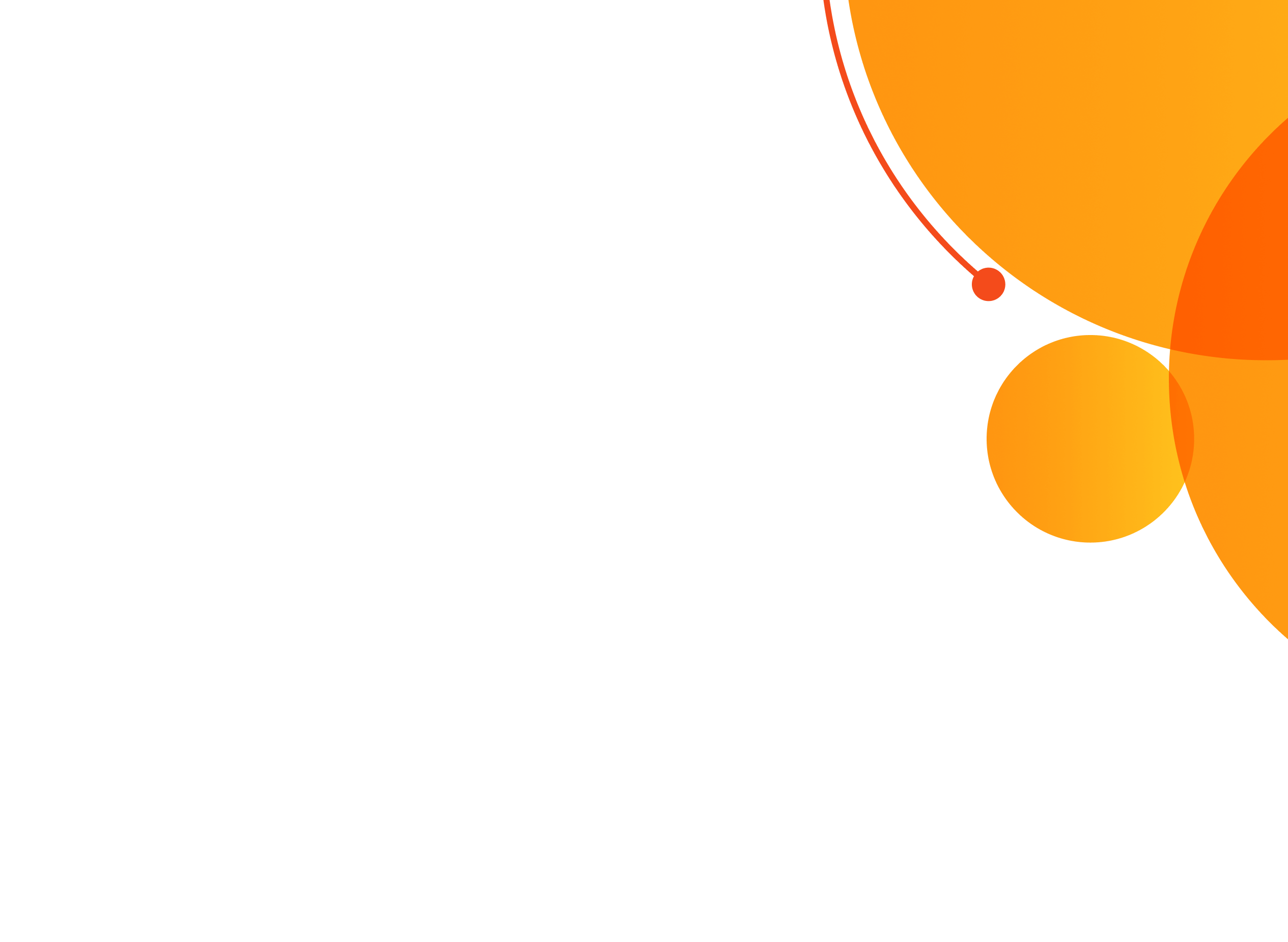
Use the buttons above to listen now.
Transcript - VUCA-Proof Your Leadership
Rich Rininsland: On this episode of Team Building Saves The World.
Russell Harvey: So my specialism is how to lead yourself and others well, in a volatile, uncertain, complex and ambiguous world.
They actually want us to have a conversation with them and, “Ooh, am I equipped?”
Please don’t fall into the trap of believing that you can feel somebody else’s feelings.
And when organizations said, “Right, everybody back into the office”, many of the humans went, “Uhm… No”.
Rich Rininsland: Hello team. It’s me. Your old friend, Rich Rininsland, host of Team Building Saves The World and I’m wondering how is your VUCA today? What’s VUCA you ask? We’re gonna find out in this episode as I speak with leadership, coach, facilitator, public speaker, fellow podcaster, and radio host, Russell Harvey. But first, I have to share some love with all of my supporters at TeamBonding.
If your team is ready to experience teamwork through the power of play, then visit TeamBonding.com to learn more. Now, team, let’s learn about VUCA as I talk with the resilience coach Russell Harvey.
Russell Harvey, thank you so much for coming on the show, man. I appreciate you being here all the way from across the pond.
Where are you coming from?
Russell Harvey: Thank you, Rich. It’s very nice to be here. So I’m in the north of England, Leeds, in the County of Yorkshire, and, it has got the moniker of God’s own country, Rich. So, you know, allegedly when you’re coming to the Yorkshire Dales, that’s it, you’re in God’s own country apparently.
Rich Rininsland: Ah, well I’m from Jersey and they said the same thing there, so I’m not sure.
Russell Harvey: Oh, okay. No, I hear that’s fine.
Rich Rininsland: That’s New Jersey. Not to be confused with your Jersey.
But Russell, now normally, here’s the thing. I start the show like this: I introduce the guest and then I have them talk a little bit about themselves, introduce themselves to the team out there who are listening.
Just to get that feel of who they are before we dig into the topics. But it’s only like a 40 minute show. And you have done so much. I’m looking over your CV that I have up on my computer here. 20 years experience in just the coaching industry. You’ve also been a national training awards judge. You’ve been a member of the Association of Training. You are certified in training, education, and coaching.
Are you just bored? Is that what’s going on?
Russell Harvey: No, no, no. I, I think it’s just, I love human development essentially. Just literally just what makes us tick. How come we do the things we do? and how come that person is over there doing that thing, which is just, “oh my God”?
And logically you’ll go, “well, yeah, the textbook says that they would do that.” And you go, “okay, yeah, it’s fine”, but you look at it and go, “but yeah, I don’t, don’t get it. I don’t get it”.
Rich Rininsland: But what made you start this way? I mean, what made this the direction your life was going to take?
Russell Harvey: Yeah. So as a kid, really interested in human behavior and then so genuinely, it was 1996 in Hong Kong.
So I know I don’t look old enough obviously to have that timescale. And I was traveling around the part of traveling around world for a year, and I was teaching English in Hong Kong and when people in the room were having light bulb learning moments.
I suddenly went, “oh, I wanna do this for a living”. So I knew I didn’t want to be a teacher, in a school. That wasn’t me. So when I came back to the UK, it was like the job title was, I think I wanna be a Business Trainer. And recruitment agencies go, “what do you know?, What you qualified in?” And I went “Nothing” and out.
And then that’s when all of the qualifications… so a career in Learning and Development. And then today and for a number of years, I actually, I am a coach and I am a facilitator, Richard. It’s who I am, and it’s just. I love supporting individuals to have light bulb realization and learning moments.
Rich Rininsland: Excellent. And over the past 18 years, you’ve specialized in, and this is a new term for me, is it called VUCA or just V U C A?
Russell Harvey: No, it’s called, it’s VUCA. Yeah, absolutely.
Rich Rininsland: Now explain to my team. I even had to Google it and do a background search on it myself. Explain to my team what it is and how this became your focus.
Russell Harvey: So the simple version is we hear the sentence loads of times of “change is constant”. And we will all, and we’ll all just nod exactly as you are now. However, the VUCA model brings that to life for me. So my specialism is how to lead yourself and others well in a volatile, uncertain, complex and ambiguous world.
So that’s four buzzwords there, you know, volatile, uncertain, complex, ambiguous. And I’ve got four more. So to counterbalance, the first four buzzwords, four more are, you need vision, understanding, clarity, and agility.
Rich Rininsland: Lovely!
Russell Harvey: However, when you put all this together and you look behind the definitions of all of these eight words.
It brings to life to you about how come change is constant, and then as a leader and as a human, how you can face them and they all link to resilience. So the resilience and the VUCA piece are all interconnected. The VUCA model’s not mine. It’s from the 1990s. And the ex head of the armed forces Afghanistan, Iraq, and an occupational psychologist called Louis Soaker came together and brought it into the business world.
So that’s, that’s where I’ve been for the last umpteen years.
Rich Rininsland: So you have been quoted, as talking about a mojo. Corporate mojo. Is that resilience to you?, or what does Mojo… and the fact that you’re British is blowing my mind that we’re even using this term, but does it mean resilience or what is it for you?
Russell Harvey: Yeah, so mojo, you could equate to the word thrive. So in my space, you have got these words that are out there, so there’s surviving, coping, and thriving.
Surviving is hanging on by your fingernails, right? Literally, “I am not in a great place.”
Coping can be a broader spectrum of like, “I’m okay”, but it could be “I’m okay and I’m about to tip into not okay”. Or it could be “I’m okay and I’m about to tip into good”.
So when somebody has their “mojo” you, and they are thriving. They legitimately say “there’s a lot going on, there’s a huge amount of change going on and ’cause I have built and grown my resilience, I am in a good place”.
Rich Rininsland: Is it just resilience though, and how is it that we can, just to backtrack a bit more, how is it we can recognize we’re losing our mojo in a corporate sense?
If I am a leader out there, someone mid-management or above who feels like maybe something is slipping. How do I know it is?
Russell Harvey: So it’s all in response to the lovely question of, or questions of “how are you?” and “how’s work?”.
It’s all in that space. So prior to working with me, sweeping generalization client’s responses to “how are you?”, “how’s work?” will be some variation of: “there’s too much change”, or “I used to have a lot more energy for this”, or “I’m not entirely sure how I’m going to do X, Y, Z”.
We seem to have the same problems that are coming up, and it’s all about this word of energy, this internal feeling of energy. So during and after work with me, you ask them, “how are you?”, “how’s work?” They’ll go: ” Yeah. I’m really good. I’ve got total clarity about my purpose and what I’m here to do. I understand what it means to me personally to be resilient, and I’m engaging with that and, and spending enjoyable time doing it. I know what it means to be a resilient leader. I have clarity on the questions I’m supposed to be asking. I’ve got clarity on the decisions I’m supposed to be making”.
That’s the difference between the two and one, just little build upon that just hopefully brings to life the relevance of this is that the last two World Happiness reports, there was some research in there that really intrigued me:
Our ability to answer well the question of how are you, how’s work? Yeah. Something ridiculous, like 70% of our ability to do that answer well is down to our relationship with our line manager.
Rich Rininsland: Okay. Define that for me.
Russell Harvey: It’s literally, you’ve got your boss, your line manager and how good your relationship is with them, about how well they nurture you, grow you, coach you, develop you, provide work for you that is nurturing you and making you feel good. That has an impact upon your answer to the question “how are you?”. Because when we turn up for work each day and we know that somebody is there for us, they’re there to support us, they’re there to understand what our strengths are. They’re there to enable us to grow and develop. And we are going to answer this question well, essentially.
Rich Rininsland: When did that flip, or was it always that way? Because I can remember back in my days of corporate life where I showed up and I was expected to bring the energy with me to bring those good feelings.
I had to be the motivator. And when everybody on my level. Was motivating themselves along, then the managers got to pass that good feeling up. When did this change? Was it just the pandemic or has this been a slowly shifting mass all throughout?
Russell Harvey: So, so it’ll always have been around. But then it’ll be alongside the traditional level of work.
So it’s a case of, from a corporate point of view, it’s like, does the corporate see the humans? How do they see the humans? Are they people that just part of a sausage machine to do what we tell them? Or actually have we understood that actually, when we nurture, enable our people to be at their best, their performance and their engagement and the productivity actually really improve?.
And so how do we do that? Actually we need quality line management relationships, and the pandemic absolutely did have an impact upon that because a lot of people globally turned around and said, “actually, I’ve had the opportunity to reflect upon how work is done”. And then when it’s just a simple version of when organizations said, “right, everybody back into the office”, many of the humans went “no”,
We have understood that there’s a better way of doing this, so employee power increased as a result of that.
Rich Rininsland: Okay. For the management and above, did that in fact increase VUCA levels or…
Russell Harvey: Yeah.
Rich Rininsland: …help decrease VUCA levels? No, it definitely increased it when the power shifted.
Russell Harvey: Yeah, it did, because. Because it was, you know, line managers in more senior leadership were going, I’m being really simplistic now, but, they used to sort of say, “we’re telling our people what to do, and they do it, and now they’re answering back”. And actually I’ve understood that just telling them “harder” and “more” isn’t working.
They actually want us to have a conversation with them and, “oh, am I equipped, you know, as a leader, to have this conversation?” And actually I’ve got to adapt.
So we keep talking about adaptability is a huge element of being resilient. This goes into the whole place of like when changes happen around us that we didn’t instigate, we struggle with them or we can struggle with them.
Rich Rininsland: So you deal a lot with, both in America and Europe, correct?
Russell Harvey: Yes. Yeah. UK, yeah. Globally, yes.
Rich Rininsland: Okay. How has the VUCA been since the pandemic? I mean, we’ve been back to work, you know. No one’s in lockdown anymore. Nobody is forced to shutter. So how has it been in the past few years that you’ve seen.
Russell Harvey: So it’s been equally VUCA …
Rich Rininsland: Can we make it a verb? Is that okay? “Oh man, I’m VUCA-ed”. “I am just VUCA-ed like you wouldn’t believe”.
Russell Harvey: This, this is a case of… when people face into this lovely VUCA terminology, they really get the fact that this what it really means that change is constant. That there’s always something somewhere going on, and it’s understanding when and how it will impact me or if it won’t impact me essentially.
So yeah, so both UK and US, there have been changes of government and there have been changes of leadership style essentially. And, we have had a variety of financial challenges. So still, unfortunately in the UK, one of the only industry that’s doing really well is, insolvency.
Which is, you know, not great, essentially.
And, there’s this funny new thing, Rich, that you know, I dunno if you’ve heard of it, called Artificial Intelligence.
Rich Rininsland: I’ve heard some words.
Russell Harvey: Yeah, there’s this, you know, God knows what on Earth it is, so. You know, artificial intelligence is absolutely going to VUCA us into the most VUCA place that we’ve ever been VUCA-ed essentially.
Rich Rininsland: I think you just used it as three different parts of a sentence, right?
Russell Harvey: I absolutely, yes, yes.
… an English teacher… so I dunno if that helps.
Rich Rininsland: But why? Because there are so many people who are counting on it, and there are so many people who are dreading it. Why? Why is AI, you know, either gonna VUCA us out of everything… and if that’s the case, then why do so many people believe that it’s the savior that they’re treating it to be?
Russell Harvey: Well, I suppose simple answer is like, it’s the newest, latest, big, shiny thing.
Rich Rininsland: Okay.
Russell Harvey: So when television first came along or whatever the, you know… it’s the newest, shiniest thing. And so then the human race is going to face into that against the age old question of, do you like change?
And most of the time people will turn around and go, “it depends”.
So only certain individuals, fully understand what artificial intelligence is going to do. I’d like, I’d like to meet them. I just want, I just wanna sit down with a beer for an hour and just go, just tell me, where’s it going? And then I can either go and cry and dribble in a corner or it and go, “oh, okay then. Alright. Yeah, I can with the flow on that one”, essentially.
But yeah, it’s all about to, do you like change? And when you’ve got this big, shiny, amazing thing that a lot of people are sort of saying, this is going to revolutionize the world.
People react differently to that statement essentially.
Rich Rininsland: It’s amazing to me how many people look at it and they say “it is a great thing that right now we can put everything in it . It is like this magic box that everything fits within and then we will constantly be having good practice and great flow and so on” without even understanding what it is, that it’s a tool for people to use.
Russell Harvey: And I was talking exactly like this, so, not doing extra self promotion, but I’ve just literally been talking earlier today with my guy that helps me with my blogs. And the next series of blogs is around what on earth is this thing called Human Augmentation? You know? What is it?
And, my concern is that I’m in the space where I’m working with humans all the time about what does it mean to be resilient and resilient teams. And there’s massive areas for improvement still around that. You know, a high performing team is a resilient team. Then you sort of say, “Let’s throw Artificial Intelligence into the mix ’cause it’s going to augment us, make us better”. However, if that set of human beings isn’t currently good levels of resilience, then AI’s gonna have a detrimental impact upon us.
So the resilient team will actually give itself a best chance that AI will augment it, make it better, rather than everybody turn around and go.
“Oh my God, we are struggling to work together. How on earth we get this AI thing to work with us? I dunno.”
So yeah. What on earth is Human Augmentation, when I don’t believe we are fully there yet, and what it means to actually do human interactions really well?
Rich Rininsland: Okay. So I’m a leader. Who believes that the resilience, that the mojo is not flowing the way that it should. I’ve recognized it. I don’t want you to give away the candy store here. I still want people to be able to, you know, call you up and say, “Russell, save me. I’m VUCA-ed beyond belief. But can you just give me, gimme a sample of some of the ways that you have seen where leadership has actually improved the resilience of the team that they’re working on.
Russell Harvey: So, what’s the easiest way to talk about this?
Rich Rininsland: Without naming names or getting me in that issue?
Russell Harvey: No, no. So they engage with their resilience wheel. So what I mean by that is, if anybody asks me a question of like, “so Russell, how’d I build my resilience?” I go: there’s a wheel, seven bits to it.
And when you make the choice to engage with your resilience wheel, you will build personal resilience, leadership resilience. And if you do that with your team, the wheel with your team, you’ll be able to team resilience. So what the resilient leader does is they make the decision and the choice to engage with their resilience wheel.
I define resilience as springing forward with learning.
Rich Rininsland: Okay.
Russell Harvey: Springing forward with learning. I’m not a fan of the term bounce back essentially. ’cause a lot of the time we face into life challenges and we say to ourselves on now bounce back, which there is the risk, it’s a subconscious instruction that you call “back” to how you were. And you can’t.
Rich Rininsland: There are many times, in my personal life, where I thought if I can just get myself back to here. Then I can strive ahead again, not even understanding in my mind that, well, I did that the first time and I wound up here, where realized I needed to back up in the first place.
So, gimme something on the wheel. Let’s start this ball rolling for the team.
Russell Harvey: Yeah, absolutely. So, I’ll do all seven really quickly. Once again, it’s words, but we’ll bring to life.
So Heart of Resilience is attitude.
Then you’ve got purpose, confidence, adaptability, support network, meaning, which is about our internal storytelling, and this word “energy”, which is about playing to our strengths.
They’re all interconnected. And what the resilient leader does is they engage with their resilience wheel and they nurture it in a way that they find interesting and enjoy, for themselves.
Rich Rininsland: All right. And when they get it working for themselves, then they can start figuring out how to make it happen for the team.
Russell Harvey: Absolutely. So you can apply this will to individual leadership, team and organizations.
So for example, purpose is one of the dimensions of being resilient, and it’s the one where generally speaking, people, don’t have as great a clarity on it. So you only need one purpose. But when I engage with a leader, I ask them three questions to ultimately get… so I sort of say, “look, what’s your personal purpose?”, “How come you get out of bed each day?”. Then actually, “what’s your leadership purpose?”, “What are you here to do?” And actually, “what’s your team’s purpose?” And then playing around with those three questions that individual will identify land, land on. This is my purpose. This is what I am here to do, and I’ve nailed it.
And then you will make your decisions and your face into your work and your life against your purpose as a blueprint.
Rich Rininsland: Have you ever had people who talk about their purpose and it has nothing to do with the business that they’re in?
Russell Harvey: Totally. Yeah, absolutely. Yeah.
Rich Rininsland: Okay. How do you help them make the connection?
How do you help them make that purpose fuel the wheel for their business as well?
Russell Harvey: One of the connectivities. So if we go to the energy part of the wheel. So they’re all interconnected. this is about this strengths based approach. So in the USA, I think you’re familiar with Strengths Finder as a psychometric and I use Strengthscope.
So there’s 24 strengths. So the reason outside of work, somebody sort of say, “yeah, I’ve got this purpose. I’m disused”, they’ll be playing to their strengths in that moment. And then men be talking about work and going, “yeah, just like turn up to work…” and so they’re not playing to… so we understand those two things.
And when and how and if they can be interconnected, can they bring these natural energizers into the workplace? Can they harness them into the workplace?, or there are many individuals that have turned around and gone, “there’s literally nothing that energizes me about my job, and it never will”. And so then I say to the clients, “well, you know what my next question’s gonna be, don’t you?”
Why do you want to work?
Rich Rininsland: Why you doing this?
Russell Harvey: Yes. Why are you doing this? And where do you want to work? Yes. And there have been individuals that have gone, “yeah, I need to turn up tomorrow and have my notice in”. And there have been individuals that have done that.
They were operations director in, essentially they were taking stuff outside outta the ground and they realized that actually they wanted to nurture the earth. So they shifted from sort of, construction industry to actually being on an oyster farm in Scotland.
Rich Rininsland: Oh my God. That’s enormous.
Russell Harvey: Yeah. They were energized, resilient, feeling good, happy, thriving. Rediscovered their mojo. You know?
Rich Rininsland: So you did do follow up with them?
Russell Harvey: Yeah, yeah, yeah. Absolutely. Yes, yes.
And that was actually one of the nicest things. So, I met them face to face and they just quietly turned to me and said, ’cause you know, it’s the male thing, males don’t give each other compliments. And they just quietly said to me, “do you know, Russell, you’ve changed my life.”
Rich Rininsland: Good for you.
Yeah, because I was reading how you’ve impacted over 78,000 people so far.
Russell Harvey: Absolute. So as of today, 83,512 ish. Woo.
Rich Rininsland: And your goal is a hundred thousand?
Russell Harvey: A hundred thousand by the end of this year.
Rich Rininsland: Nice, nice, nice.
Do you have, ’cause I love that story, but do you have another story that you can, that can show us that transformation?
Russell Harvey: Actually there’s, yeah, there’s one lady that is a consultant and she was really struggling with how could she could get her head, her heart, and her gut in an alignment, you know? So a, a lot of people in life will have been given some feedback… when an individual’s at their best, they’re feeling great, they come off in a particular way and they feel like they’re like they are achieving so much.
And, you know, I’ve got a bit of feedback of like, “that’s too much, that’s over the top. Can you tone it down?” So, with this particular individual, we got to the stage where literally they could ignore that feedback ’cause it wasn’t legitimate.
It’s literally, “I am absolutely at my best when I’m doing these things”. And actually I need to seek out those people that are never gonna turn around to me and go, “that’s too much, tone it down”.
Rich Rininsland: Hmm. That is great. That is a crazy thing to say, to actually hear.
Russell Harvey: Yes.
Rich Rininsland: I hate to say this ’cause I remember times when I was a child and I would hear that from my parents or adult group that I happen to be around. It’s like “you are a lovely, wonderful child, but you’re a bit much right now” and it doesn’t make me wanna continue conversing with these people at all.
Russell Harvey: No, but, it’s also, it is a difficult balance to strike. Because we can do this thing, something called strengths in overdrive.
So without sounding hypocritical, there is a risk that that can happen when somebody’s absolutely playing to their strengths, but it’s not appropriate at that moment to use those particular strengths. They have to think about maybe dialing something down and dialing something else up.
Rich Rininsland: So it’s about balance.
Russell Harvey: It’s always about balance, Rich. Okay. Is always about balance.
Rich Rininsland: But I bring this up with you because you have run confidence workshops for students and executives. I assume Not at the same time.
Russell Harvey: Not at the same time. No, not at the same time. But I’d like to.
Rich Rininsland: What can leaders learn from the work you’ve done with kids? Like what has come up in the kids workshops that you think “this is something that adults need to either relearn or that I can bring this up as an example and then I’ll tell them it’s about a 14, 15-year-old”.
Russell Harvey: Yeah. It’s openness and curiosity essentially. That’s it.
I understand it. When we are younger, there are fewer barriers, the fewer mental barriers, about outcome, “why can’t this be done?”, “why has it gotta be done that way?”
There is a real significant risk that as we grow up, we lose our curiosity.
Okay? And resilient people are open. So heart resiliency is attitude. So if at any time we’re sort of saying, “well, that can’t be done because…”, I live in the real world and I’m pragmatic and I understand there are legitimate times you can say “that can’t be done because…”, and they go, “no, I get it, I get it”.
However, if it is a general mindset, then it closes things down. So curiosity is just actually exploration. So leadership teams can get better exploration, I have found. And just going down different avenues and exploring things without any understanding that it’s gonna get us anywhere, we’re just doing it for the sake of it, because actually sometimes the more often we do it, we actually learn more.
Rich Rininsland: Do they feel that they’re usually stifled in that? Well, I’m thinking would it be considered a waste of time if nothing grows from it or…
Russell Harvey: So, it goes into the whole sort of, societal approach, this lovely word, creativity as well as confidence workshops. I get lots of requests of like, “ooh, can you come and do some creativity and innovation with us, Russell?” And a lot of the time when I then talk to the client, I just tell a little bit more about why the organization sort of says, “so essentially when we ask them, like maybe on a monthly basis, like 10 o’clock on a Tuesday to come out with loads of ideas, we want them to do that, but the rest of the time we just want ’em to be quiet.”
Rich Rininsland: It’s me as a kid again.
Russell Harvey: Creativity is a specifically different part of our brain to decision making or, and potentially strategic thinking. Apologies if there’s any brain scientists around, but it’s a different part of our brain essentially. So, we have to make it as a general, part of the culture that, idea generation and creativity and curiosity is part of the norm. And you can’t just sort of say to people, “just do it then, once a month, when we need some ideas and the rest of the time just don’t, ’cause we just want you to do the work”. It’s like actually to nurture, creativity and innovation, it has to become part of the general culture.
Rich Rininsland: What about empathy? Where does that stand within all of this? Because it seems to me like the higher the levels of VUCA around you, it almost becomes in every man for themselves.
Russell Harvey: Yeah. So empathy and compassion are two distinctly different strengths, right? Out of the 24 strengths. It’s really supporting people to understand the difference.
So I’ll explain it, so everybody that’s watching, listening now, the human race is energized differently around these 24. You can’t be highly energized by all 24. Okay? You do a test and you get your significant seven, essentially. Some of the human race is highly energized by compassion, and the strengths definition of that is that they’ve got natural energy inside themselves to deeply care about the wellbeing of another human being. And as a consequence of that, I wanna make sure that you’re okay and I wanna look after you. Compassion.
Some people have got energy for empathy, so the definition of the empathy strength is somebody who’s got energy to go “I’m really curious about who you are or what makes you tick. And how come you think and feel in a particular way”, or “tell me more about how you come to that decision”. So that sort of metaphor of like, “I wanna spend a little bit of time in your shoes to see what it’s like from your world”, but a little caveat around that: Please don’t fall into the trap of believing that you can feel somebody else’s feelings.
Because you can’t essentially, you can understand that they might be feeling happiness, sadness, et cetera, et cetera, but their version of it is different to yours. So, striking the balance between empathy and compassion is what we need to do. So empathy is supportive and compassion is helping.
So we need to understand what’s the value and the benefit at any particular moment around either help or support.
Rich Rininsland: Okay. What benefits have you seen in that? In either.
Russell Harvey: So there’s a very big piece of work we’re doing for some time called Quality Conversations, which is essentially coaching skills for healthcare professionals.
So the healthcare profession is a helping profession, essentially. But it falls too much into the healthcare professional doing the things that the patient should be doing.
Rich Rininsland: Ah, yes. Yeah, yeah. Yeah. That is a pretty classic trap. I don’t need to take care of my heart and health. You’re doing that for me. Don’t you have pills that mean I don’t have to run on a treadmill all day?
Russell Harvey: Yes, exactly. This is it. So Quality Conversation, coaching skills is with healthcare professionals, and anybody is to go… So if you’re unsupportive, then this is when you are being curious and you’re asking open questions, and you’re encouraging the person in front of you to take ownership and responsibility for the behavior changes that they need to do alongside the treatment that you are giving them.
So as a result of that, all of the data and statistics and spreadsheets, all the numbers go in the right direction and there is less financial drain on the service essentially. So yeah, that’s the empathy side is asking questions and the compassion side has the risk of doing it for the patient.
Rich Rininsland: And speaking of which, healthcare wise, I mean, you have in your 20 years handled healthcare, retail, big business banking. Can you gimme like one universal truth about the dynamics that hold for all the various industries that you’ve been a part of or that you’ve worked with?
Russell Harvey: Line manager relationship that I talked about before. When the quality of the line manager, so the resilient leader is a great line manager, and it doesn’t matter what industry ’cause that is a human to human conversation, that’s a universal truth.
You need to be able to nurture a good relationship with your line manager and the line manager needs to understand actually that’s part of their responsibility to do that.
Rich Rininsland: This has been fantastic, Russell. There’s so much information that I feel I could glean from you, but again, this is only like a 40 minute show.
I do wanna ask though, if you could, for our listeners out there, our team, give them a challenge, give them an action that they can take that will strengthen their team’s resilience as well as their own.
Russell Harvey: Absolutely. From all of life’s events, pause. So, listening to a podcast is pausing. Having a good conversation with a mate is pausing, having a great conversation with the team is pausing, going for a walk is pausing. So the action is to go pause and ask themselves three questions: what have I been doing behaviorally recently that’s been serving me well?, what have I been doing behaviorally recently that has not been serving me well? and how can I do more of the behaviors and the answer to the first question?
Rich Rininsland: Nice.
Russell Harvey: So go away and do that ’cause that is role modeling, springing forward with learning.
Rich Rininsland: Excellent. Russell Harvey, my team out there. Give ’em a big round of applause.
That’s amazing. Thank you, Russell.
Seriously, you have, you have filled my mind with so much that I could be doing. I’m gonna take a lot of this into retrospective as I move forward.
Russell Harvey: So can I put you on the spot, Rich, and go, what’s the one thing that you’re gonna do?
Rich Rininsland: Well, I have right now a multitude of different careers that I’m going through right now, as we speak. One of the things I’m gonna do for myself is to clarify which one of them I get the most out of.
Russell Harvey: Perfect.
Rich Rininsland: And I’ll go from there.
Russell Harvey: Perfect. Thank you for answering that. Apologize.
Rich Rininsland: No, no, not at all. Not at all. I, I love being put on the spot, Russell, which is great because I’m gonna turn around and put you back on the spot again.
It’s time for a speed round!
I gotta ask as a radio host, do you love having a sound button next to you as well?
Russell Harvey: It is good fun. It’s that playful side of me as well.
Rich Rininsland: There is indeed.
So, in case you have forgotten what I had told you before the show started, what’s gonna happen now is for 60 seconds I’m gonna play some music.
That music just keeps me in track of, of what the timing is. During that 60 seconds, I’m gonna ask you a series of completely silly, innocuous questions. These are just to have fun and to get my team to know you a little bit better. Because this show did start as facilitators, talking to facilitators, there’s also a competitive edge to it.
So if you’re feeling at all competitive, we have topped 17 questions asked within 60 seconds. Okay?
Russell Harvey: Okay.
Rich Rininsland: You think you can do it?
Russell Harvey: I’ll try. I absolutely will try.
Rich Rininsland: Fantastic. Alright Russell, so when you hear the music, I’m gonna ask the first question. Let’s have some fun.
What’s your name?
Russell Harvey: Russell.
Rich Rininsland: What would you like your last meal to be?
Russell Harvey: Oh, prawns and sausages.
Rich Rininsland: Wow. Pancakes or waffles?
Russell Harvey: Pancakes.
Rich Rininsland: Do you have a go-to karaoke song?
Russell Harvey: Yes, I do. Suffragette City, David Bowie.
Rich Rininsland: Nice first job.
Russell Harvey: Paper round.
Rich Rininsland: Something from your bucket list.
Russell Harvey: Visit Japan.
Rich Rininsland: Most unusual job you’ve ever had:
Russell Harvey: Selling insulation products.
Rich Rininsland: What job would you be terrible at?
Russell Harvey: Finances.
Rich Rininsland: Go to summer vacation spot.
Russell Harvey: On vacation. Oh, it’s the Yorkshire Dales.
Rich Rininsland: Biggest inspiration.
Russell Harvey: My wife
Rich Rininsland: Favorite TV series.
Russell Harvey: Fluffy, The Vampire Slayer
Rich Rininsland: Favorite guilty pleasure TV show.
Russell Harvey: A guilty pleasure, a punk IPA TV show. Probably, yeah, The West Wing, actually.
Rich Rininsland: Favorite way to stay Creative.
Russell Harvey: Conversation.
Rich Rininsland: Excellent. 13 man. 13. That is not bad at all.
Russell Harvey: Okay. Has anybody done 17?
Rich Rininsland: You easily could have done 17. You gave me a little more information than I asked for. That’s the only thing that I would say. You have a tendency to get deeper in than I think the question needed, but you did fantastic. Russell, thank you so very, very much and thank you for all the information you’ve given us today.
Russell Harvey: Absolute pleasure.
Rich Rininsland: Lemme just ask you one more question. If there was a way my team out there wanted to find out more about you and the work that you do, where could they go?
Russell Harvey: The website essentially, https://www.theresiliencecoach.co.uk/
Just go on there.
Rich Rininsland: And what about your radio show? Where’s that?
Russell Harvey: And so, that has just changed. So it was Yowah Radio and it’s now gonna be Jorvik Radio, where I’m doing some tips on there so you can find that online.
Rich Rininsland: Russell Harvey, everybody. Thank you very much my friend.
Russell Harvey: Thank you.
July 29, 2025
In this episode of Team Building Saves the World, host Rich is joined by Russell Harvey as they discuss how to help employees thrive in a VUCA world—one that is Volatile, Uncertain, Complex, and Ambiguous. Specializing in the VUCA framework, Harvey explained how VUCA leadership relies on resilience, or “Mojo,” built through purpose, confidence, adaptability, support, and energy.
He stressed that line managers influence 70% of employee well-being and introduced human augmentation as a tool for building resilient teams. Harvey has already reached over 83,500 people and aims for 100,000 by year’s end—helping more individuals understand what VUCA means and how to lead within it.
About Russell Harvey:
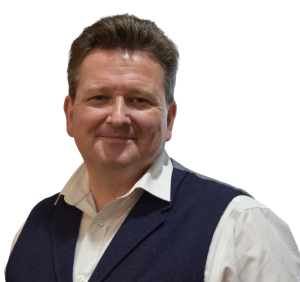 Russell Harvey, widely known as The Resilience Coach, is a dynamic leadership coach, speaker, and facilitator with over 20 years of experience in learning, leadership, and organizational development. Specializing in resilience and navigating a VUCA world for the past 18 years, Russell empowers individuals and teams to thrive amid uncertainty. With an empathetic, engaging, and playful style, he’s on a mission to impact 100,000 lives positively by 2025—and he’s already transformed over 78,000. Russell also hosts podcasts and radio shows, chairs a local school board, and volunteers with youth authors, embodying his belief in purposeful, people-centered leadership.
Russell Harvey, widely known as The Resilience Coach, is a dynamic leadership coach, speaker, and facilitator with over 20 years of experience in learning, leadership, and organizational development. Specializing in resilience and navigating a VUCA world for the past 18 years, Russell empowers individuals and teams to thrive amid uncertainty. With an empathetic, engaging, and playful style, he’s on a mission to impact 100,000 lives positively by 2025—and he’s already transformed over 78,000. Russell also hosts podcasts and radio shows, chairs a local school board, and volunteers with youth authors, embodying his belief in purposeful, people-centered leadership.
I define resilience as springing forward with learning. I'm not a fan of the term bounce back, essentially, because it's a subconscious instruction that you'll go back to how you were, which is usually not the case.
Russell Harvey
More great podcast episodes.
Season 7 | Episode 1
The L&D Approach That Actually Works
Season 6 | Episode 18
That’s a Wrap!
Season 6 | Episode 17
Work-Life Integration
Season 6 | Episode 16
Laughing it Off
Season 6 | Episode 15
Corporate Volunteerism in Action
Season 6 | Episode 14
Collaborative Play at Work
Season 6 | Episode 13
The Science of Supportive Workplaces
Season 6 | Episode 12
The Power of Being Present
